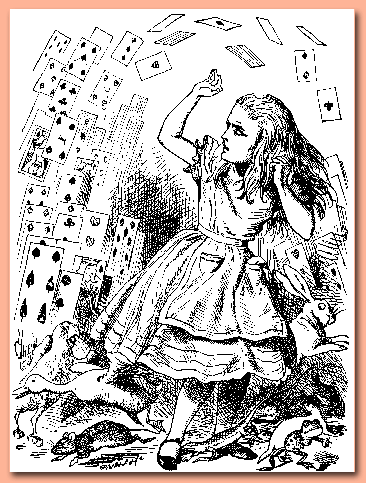
It suddenly occured to me that Glen Smith's experience is something like the story of Alice in Wonderland. That tale, of course, is about a sensible girl who falls through a rabbit hole and finds herself in a strange, upside-down world. Although in Alice's case, it is clear that she has ended up in a very peculiar place, Glen Smith's initiation is only very gradual...he starts off on the wrong foot immediately by shooting Marybel, but it takes awhile in the expected turmoil of this incident for it to slowly dawn on him that his expectations, the way society is supposed to work for a fine, privileged gentleman like himself, are completely irrelevant. And like Alice, he can't escape. He would be physically unable to find his way out of the village. But in the meantime, even the villagers' diet is bizarre: nothing to eat but roses?
It's been interesting so far to note the different perspectives Moto Hagio takes within the various episodes of this Poe story. Charles was our first observer of this clan, until they uprooted themselves and left for a long interim, reappearing momentarily when he is a middle-aged man. Now, in "Village of the Poes," it would seem like there is a home not only for Edgar and his immediate family, but for an entire village of vampires. The mystery village would appear to be safe from the hostile, larger world, apart from a rare, bumbling outsider like Glen Smith. But yet, without giving away much of the story at all, a permanent sanctuary in time, in space, is the last thing Edgar and his family will have. They will spend most of their time in our human world. In camouflage, with rare flashes of their true selves.
So it's fascinating, again, to read through the Poes' saga and simultaneously experience a sense of wide openness (travel through both time and space, immortality) and extreme claustrophobia and inhibition (masking of one's self-identity, never straying from the clan). Moto Hagio handles this paradox with an extraordinarily delicate touch, yet below the surface there is constant friction. Which is one thing I'm admiring about this story; no fear, but a subtle sense of tension on every page.


No comments:
Post a Comment